
AADL Talks To: Peter Andrews
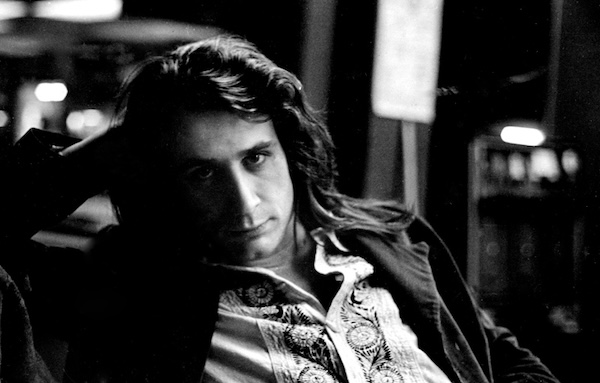
In this wide-ranging interview from 2010, Peter Andrews recalls his varied career producing and managing local and regional music talent — from managing the Scot Richard Case (SRC) band and bringing bands like The Who, Jimi Hendrix, and the Yardbirds to Ann Arbor’s Fifth Dimension club, to booking national acts for University of Michigan student groups. He also discusses his role in Ann Arbor’s legendary Blues and Jazz Festivals, producing the John Sinclair Freedom Rally at Crisler Arena in 1971, and bringing John Lennon and Yoko Ono to town.
Musician experiments with electronic forms

- Read more about Musician experiments with electronic forms
- Log in or register to post comments
Controversy drapes Prince like royal cloak
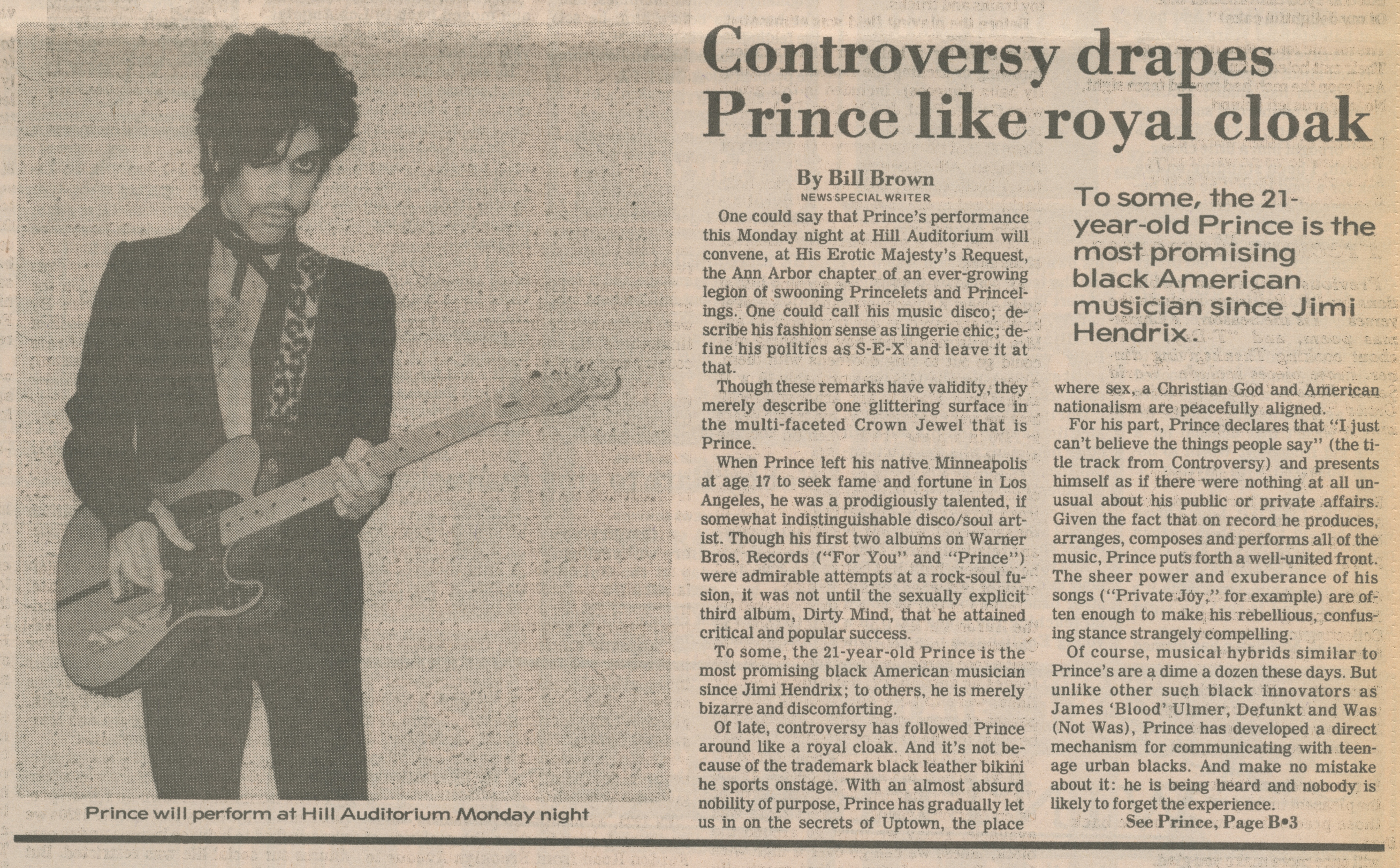
- Read more about Controversy drapes Prince like royal cloak
- Log in or register to post comments
Prince blends black rock, dance in innovative, yet empty fashion
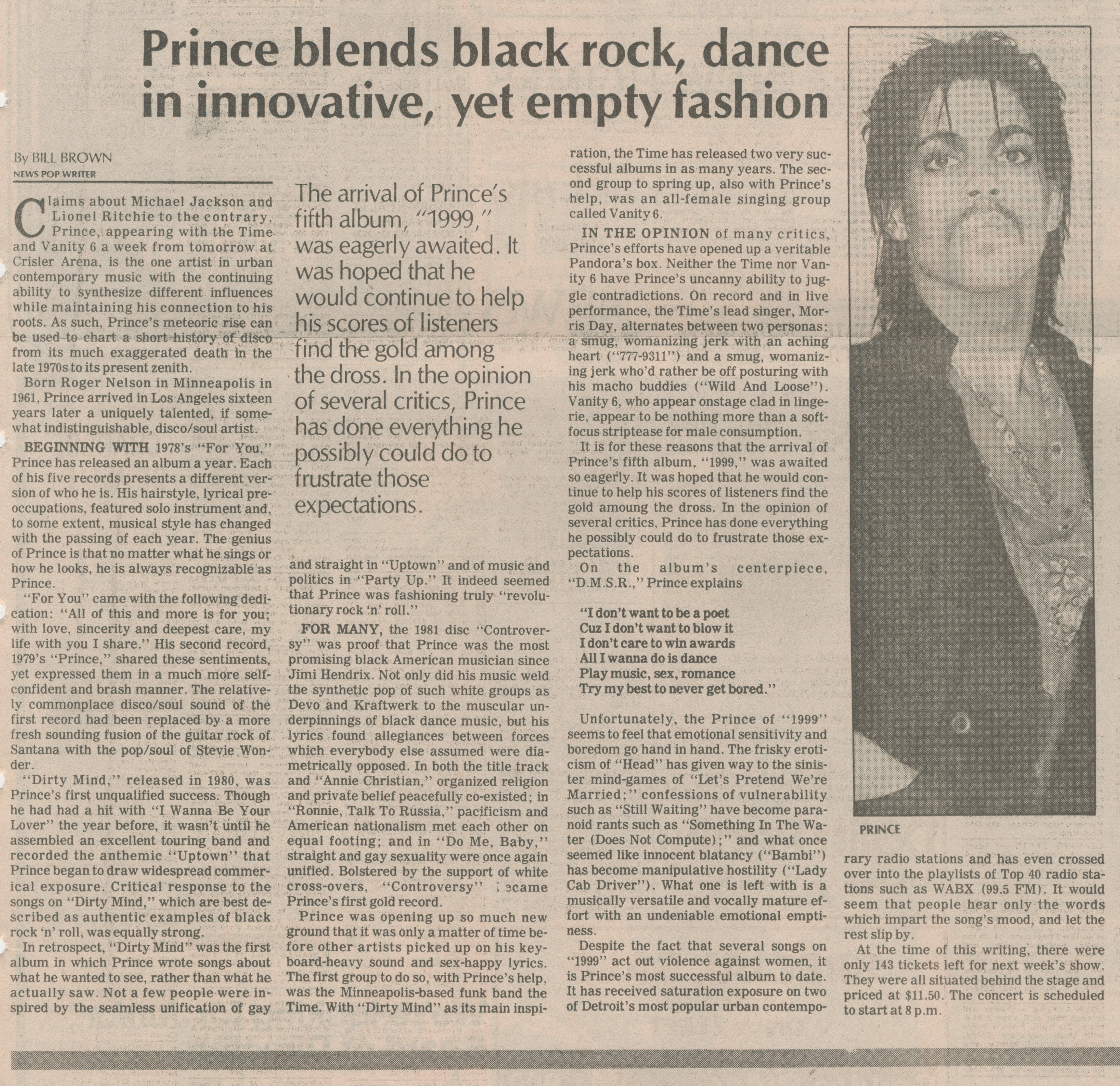
Backstage with pop star Prince: Fantasy, eroticism and music
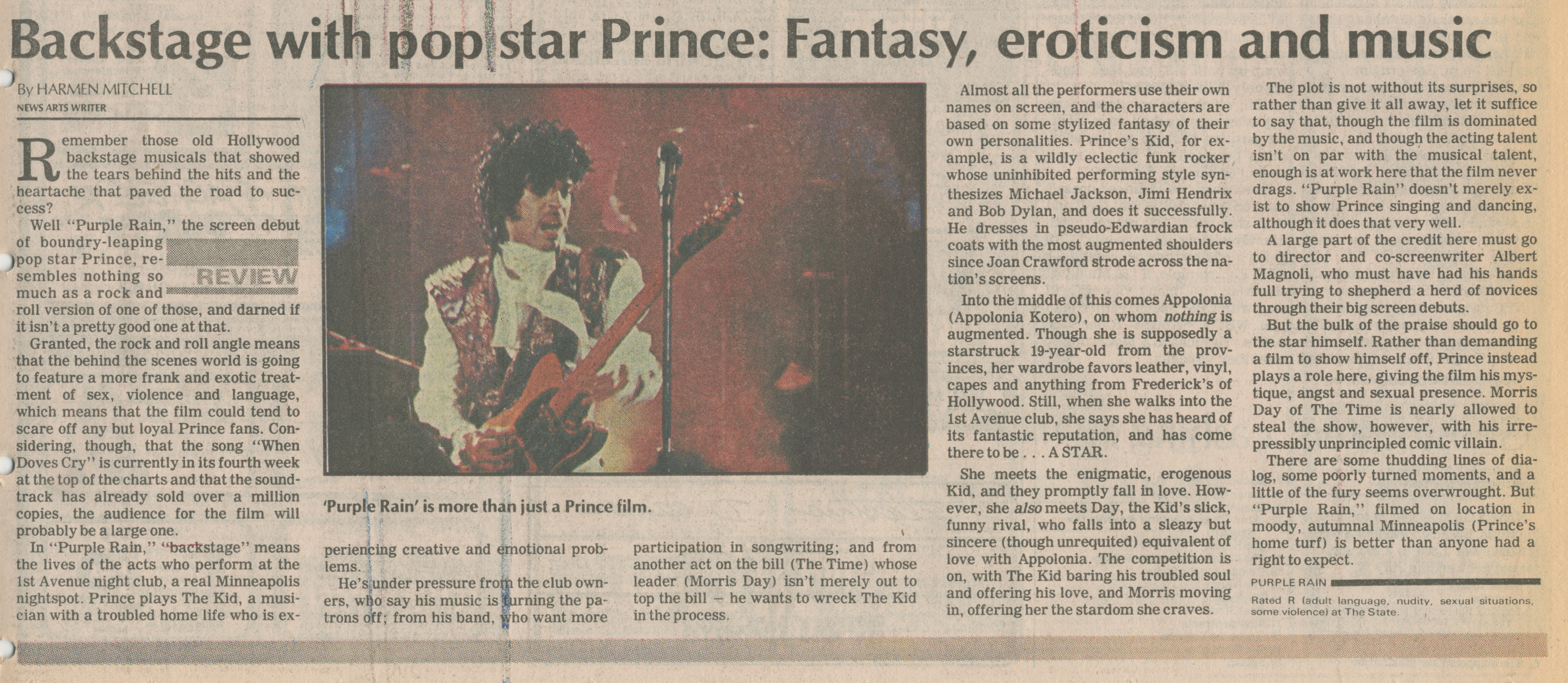
Move over Michael, make room for Prince
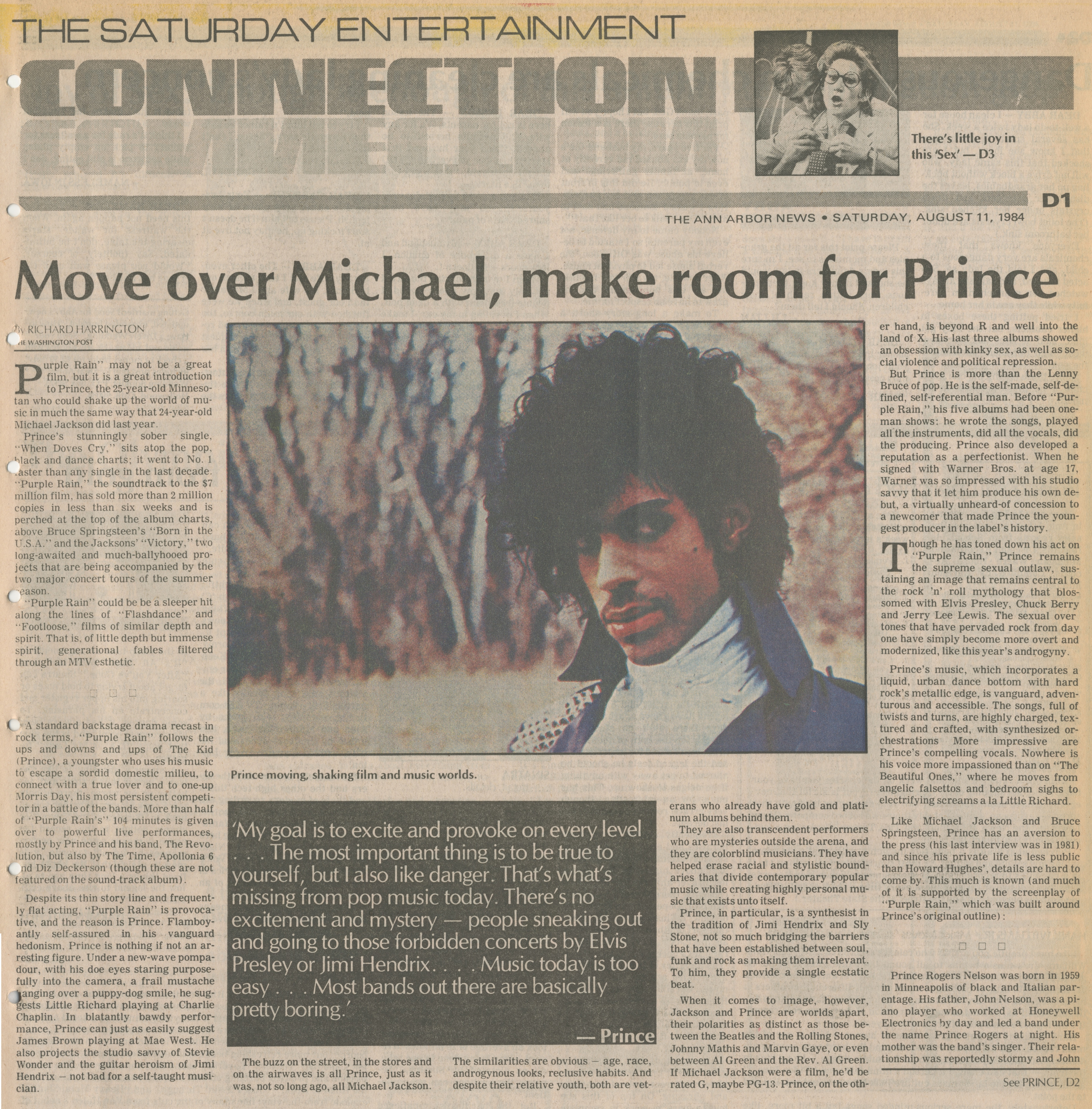
- Read more about Move over Michael, make room for Prince
- Log in or register to post comments
The prodigal Prince pays homage to fans who have been with him since the start
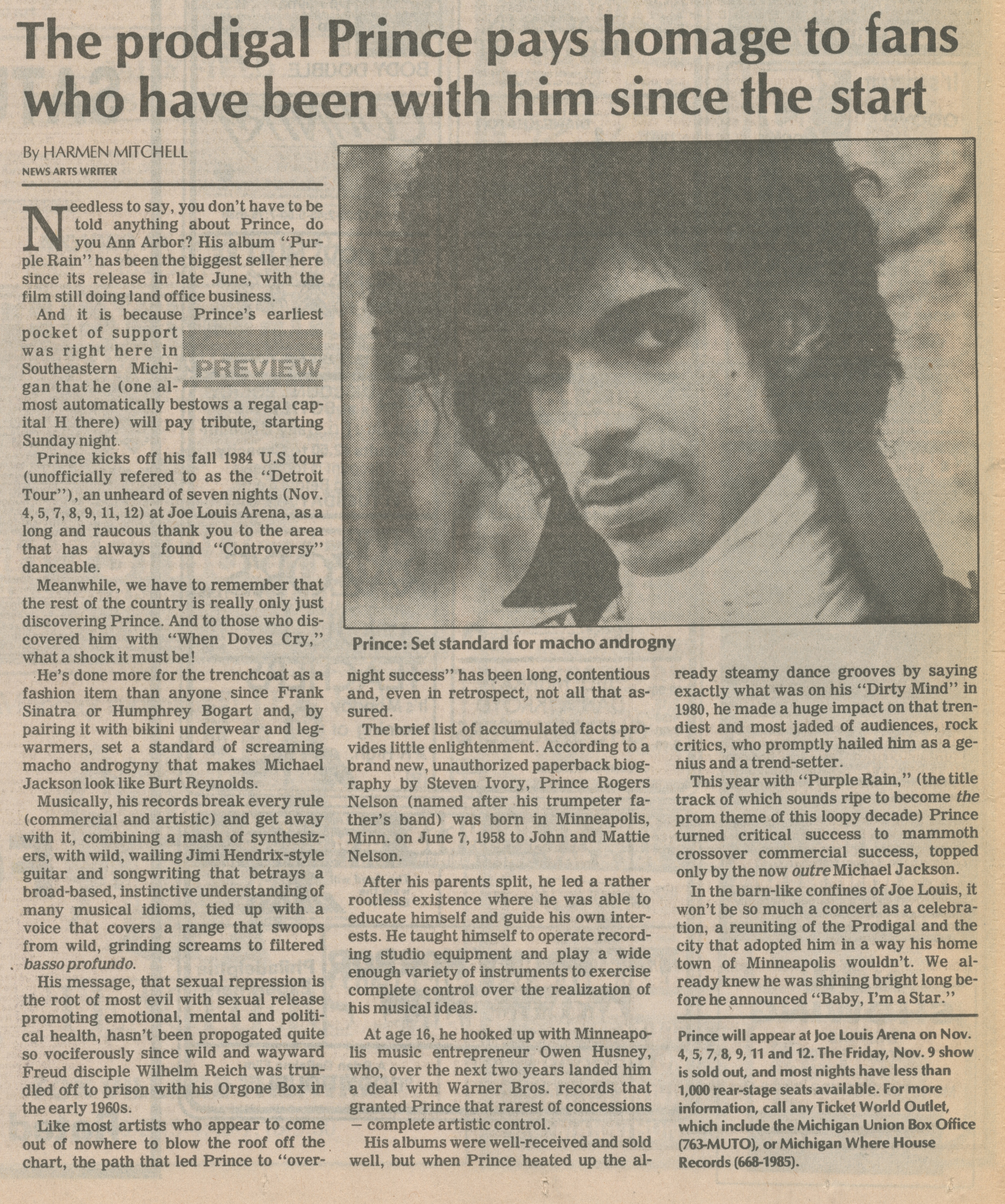
Legends tune up for A2 Folk Festival

- Read more about Legends tune up for A2 Folk Festival
- Log in or register to post comments
AADL Talks To: John Sinclair (March 22, 2010)
In this interview from March 22, 2010, poet, author, and activist John Sinclair reflects on music in Ann Arbor - from the MC5, the free concerts in the parks and the Ann Arbor Blues and Jazz festival, to his specific memories of local clubs and musicians. He also talks about the influence of both the Beat generation and black music on his cultural and political awakening, the origins of the White Panther Party, and the importance of newspapers.
AADL Talks To: Leni Sinclair
In this interview, photographer and activist Leni Sinclair recalls the origins of the Detroit Artists Workshop and first Trans-Love commune in Detroit, and their strategic retreat to Ann Arbor following the Detroit Riots. She also talks about the groups' politicization as the White Panther Party and reflects on life at their Hill Street commune, including what led to its breakup in the mid 1970s.